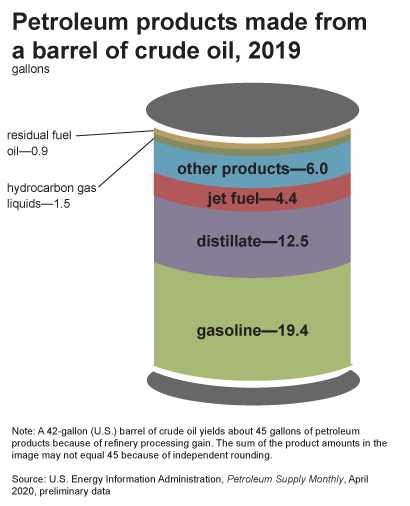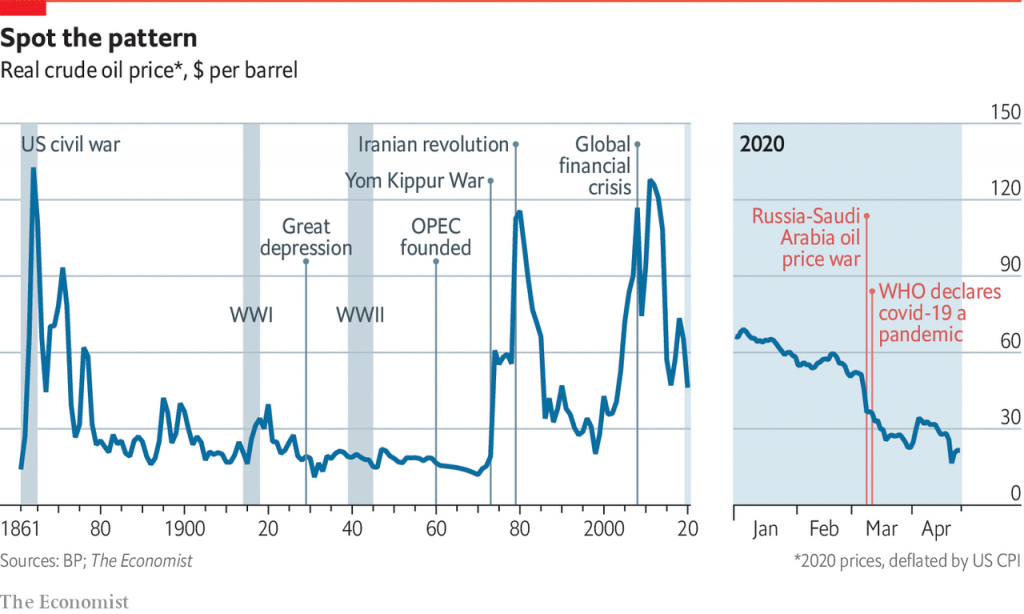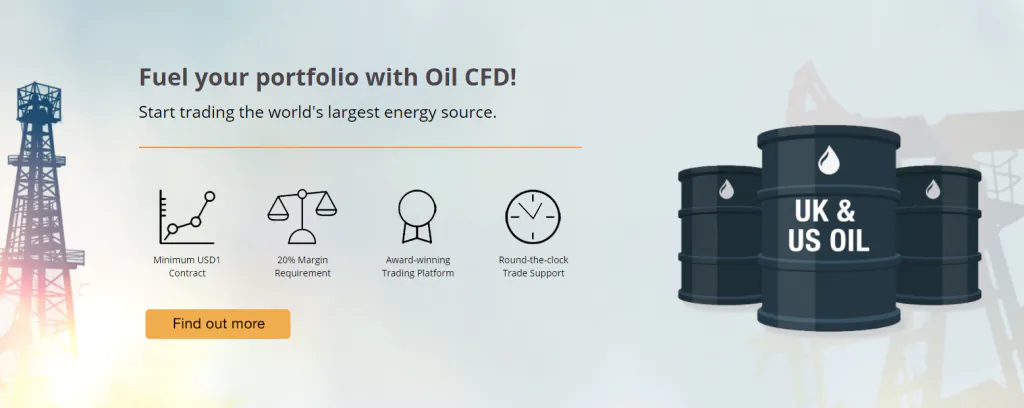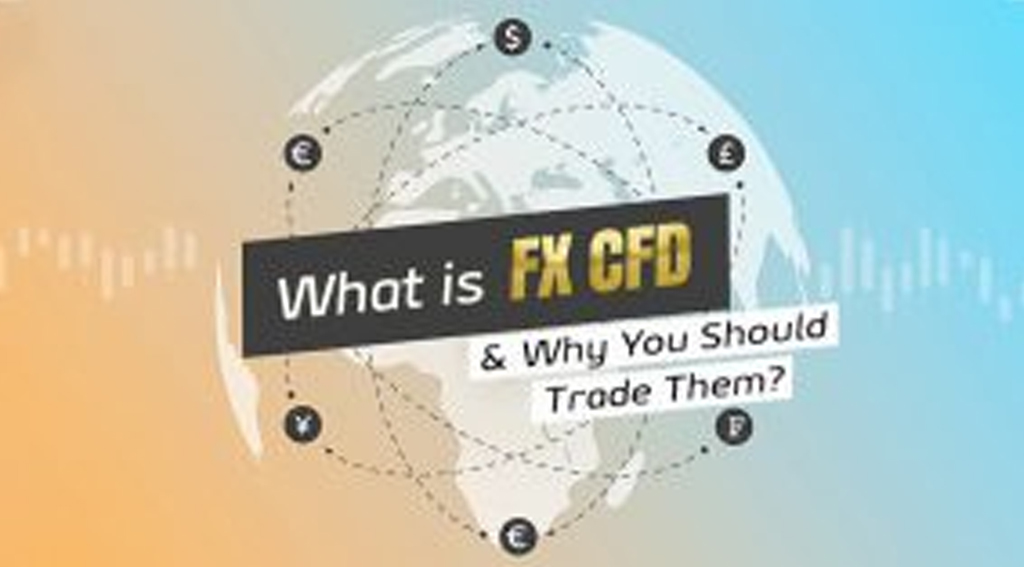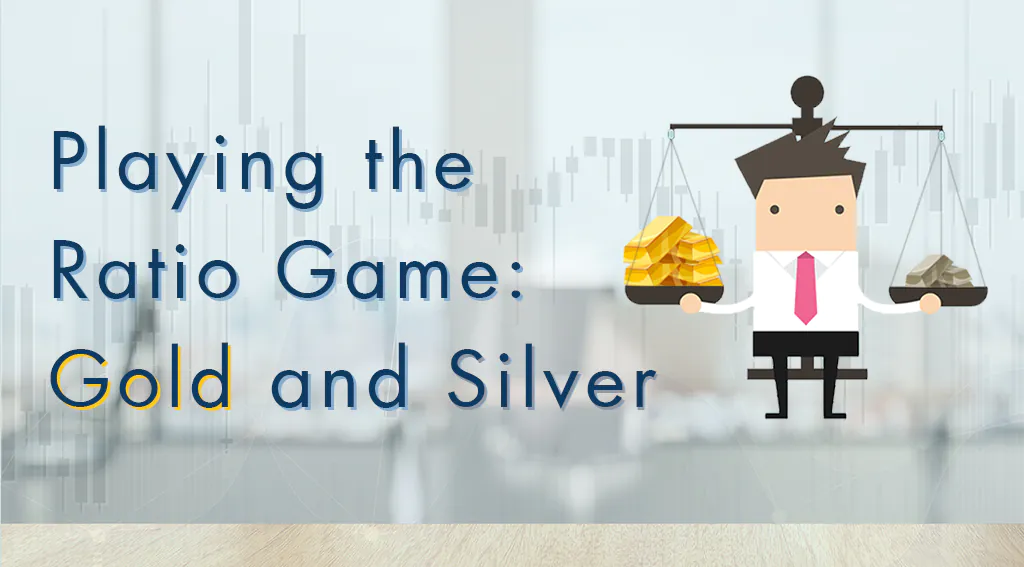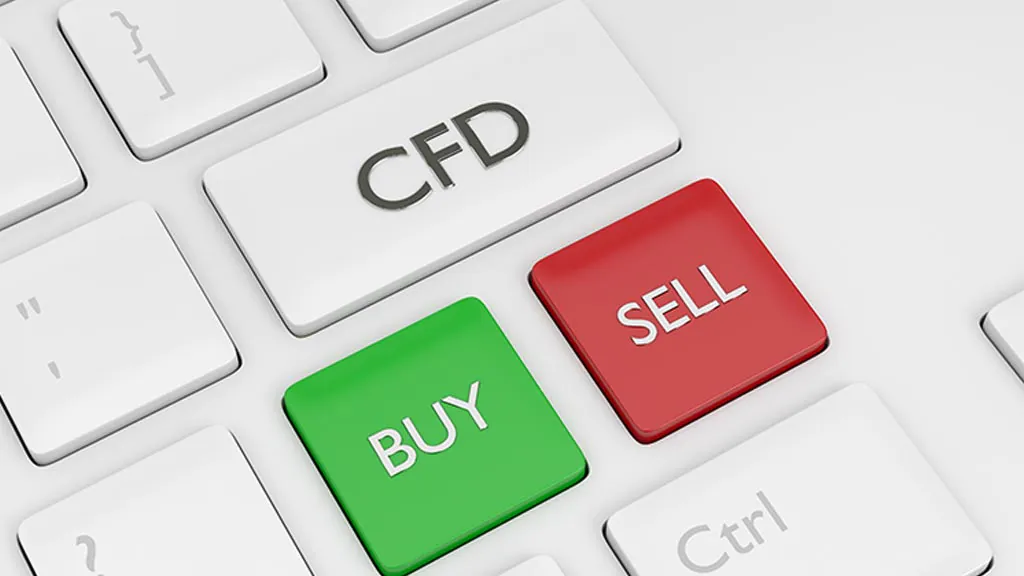What You're Missing Out If You're Not Trading Oil!
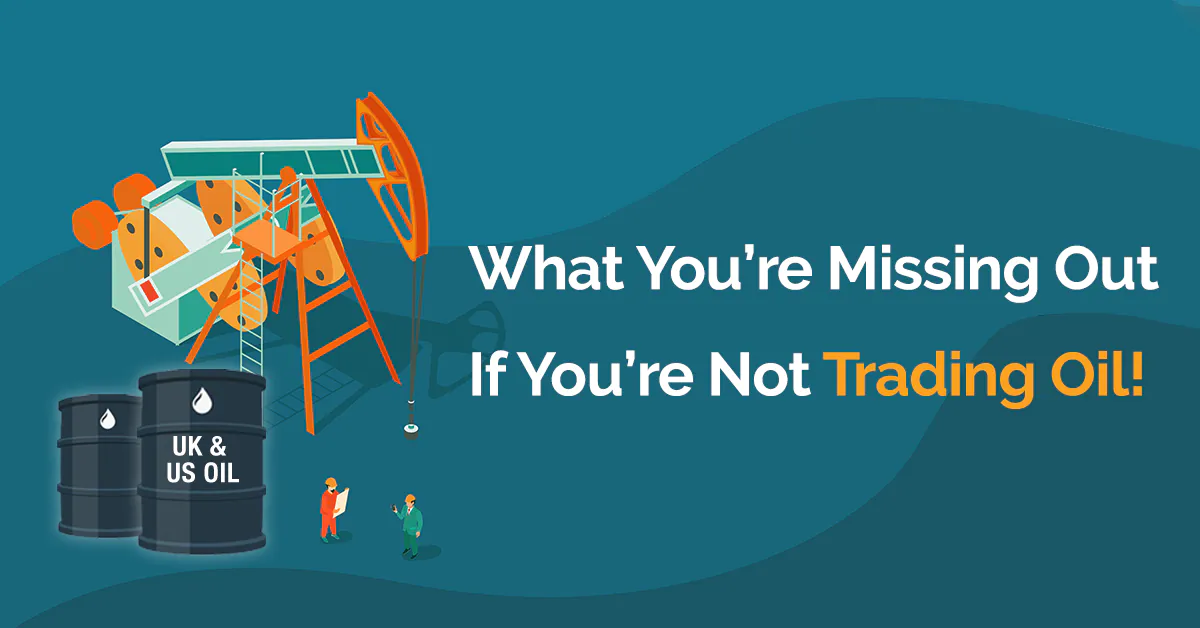
Published On: 26 February 2021 | 12:00 PM
Kah Chee, Dealer
Kah Chee graduated from Nanyang Technological University with a Bachelor’s Degree in Accounting. With more than 10 years of experience as a full time, professional investor and trader specialising in the Hong Kong and US markets, he employs fundamental and technical analyses with experience in a multitude of financial instruments.
Most valuable resource in the world
Crude oil is the primary source of energy in the world.
It is black gold or the “blood” of world economies. As much as 80% of a barrel of crude is refined into gasoline, jet fuel and distillate fuels such as diesel and heating oils. The rest is processed into petrochemical feedstocks, waxes, lubricating oils, asphalt and other by-products that make their way into thousands of everyday products such as vitamin capsules, tyres and plastics.
Since the start of COVID-19, oil prices have plunged. Demand has shriveled because of pandemic lockdowns and travel restrictions. Of late, prices have partially rebounded. If you are wondering whether it is a good time to enter the oil market, read on as we explain why we think oil should be in every trader’s portfolio!
Main benchmarks: Brent Crude and West Texas Intermediate (WTI)
Brent Crude and WTI are the two primary benchmarks for the highest-quality refined oil products. They are the most widely used markers by oil traders.
Accounting for two-thirds of the world’s crude contracts, Brent Crude – also known as Brent North Sea Crude – is the most widely used benchmark for African, European and Middle Eastern oil markets. Brent Crude refers to oil from four fields in the North Sea: Brent, Forties, Oseberg and Ekofisk. This oil is ideal for refining diesel fuel and gasoline.
West Texas Intermediate (WTI) is oil extracted from the wells in the United States (US). It is the main benchmark for the US oil market. WTI has less sulphur content, making it lighter and sweeter than Brent oil and easier for refining. It is produced in landlocked areas which makes transportation difficult and is commonly used for gasoline refining.
What affects oil prices?
Crude oil is the most talked-about commodity. While Brent Crude and WTI are often correlated, various factors such as geopolitical developments, supply, demand, production and delivery may affect oil prices differently and widen the price differential. The Global Financial Crisis in 2008 caused WTI oil prices to fall from a high of US$147.27 in July 2008 to a low of US$33 in February 2009.
Oil prices are determined by marginable futures contracts which are subject to speculation and hedging by hedge funds and commodity traders. In fact, less than 5% of futures contracts is fulfilled by physical settlement or delivery of the commodity. [1] This means that oil prices can increase or decrease quickly without any change in real demand and supply.
Why invest in oil?
Reason 1: High Liquidity
Crude has always been one of the most highly-traded commodities in terms of volume and open interest.
- Volume is the total number of traded contracts
- Open interest is the total number of open long and short positions in the market
Why is liquidity important? Trading in low-liquidity commodities like exotic metals may result in wild price swings and high losses in slippage. The higher the volume and open interest, the lesser the slippage.
Liquidity is important for all assets, particularly commodities. Liquidity assures you that there is a market for you to buy and sell easily. It attracts traders and investors to a market.
2020 is one of the most volatile year for crude-oil trading due to COVID-19. Brent Crude hit a high of US$70.25 in January 2020 and went as low as US$9.12 in April 2020. To mitigate such volatility, Phillip Capital’s latest UK and US Oil CFD contracts have been designed to help traders and investors manage their risks.
Reason 2: Pent-up Demand for Oil
With the UK being the first country to approve the use of COVID-19 vaccines [2], the outlook for the global travel industry has started to look positive. As early as March 2021, pent-up demand for both domestic and global travel could be a powerful catalyst for refineries and airlines to restart oil hedging to lock in future prices. International travel is expected to pick up as borders gradually reopen. It is widely perceived that ‘peak oil’ [3] is not here yet. Pent-up travel demand from a widespread success of COVID-19 vaccinations may further increase crude-oil volatility. This makes it an even more compelling trading tool!
Reason 3: Portfolio Diversification
The 11-year bull run in equities could be losing steam. Equity markets have been sluggish with generally lower volatility in the past three months than the beginning of the year. They seem to be heading into a multi-year sideway range while stock fundamentals try to catch up with their technically higher prices
Crude oil, being the most liquid commodity and historically more volatile than the S&P 500, can potentially boost your trading profits and assist you in portfolio diversification.
How to invest and trade in oil
1) Purchasing actual oil
There are a variety of ways to trade oil. Purchasing barrels of crude oil directly and selling them when prices increase is one of them. However, this method of trading oil is difficult and cumbersome as you will need space to house your barrels as well as pay hefty storage and shipping costs.
2) Petroleum stocks or equity CFDs
Alternatively, you can trade and invest in listed petroleum companies such as Sinopec, Royal Dutch Shell, ExxonMobil and Chevron, to name a few. While you are not directly trading on oil, oil prices are correlated to the earnings of these companies. Shell, one of the world’s largest oil companies, reported in June 2020 that the low price of oil this year could reduce the value of its assets by up to US$22bn. [4]
3) UK & US Oil CFDs
A much simpler way to trade oil is via Contracts For Differences (CFDs).
With CFDs, you can easily trade oil without owning oil. Our brand-new UK Oil CFD and US Oil CFD offer investors great flexibility as they can trade contracts of US$100 or as little as US$1! UK Oil CFD is our proprietary product that tracks the spot price of Brent Crude while our US Oil CFD tracks the spot price of the WTI.
Benefits of trading oil CFDs:
- Bite-sized contracts, from as low as US$1. Starting with small contracts is ideal for new oil traders!
- Low upfront capital needed, as the margin requirement is 20%.
- Trade on both rising and falling markets, able to go long and short.
What are you waiting for? Fuel your portfolio and trade the world’s largest energy source with us now!
Find out more about UK and US Oil now!
References
[1] https://www.thebalance.com/taking-delivery-of-commodities-via-the-futures-market-4118366
[2] https://www.cnbc.com/2020/12/02/uk-approves-pfizer-biontech-coronavirus-vaccine-for-use.html
[3] Peak oil refers to the hypothetical point at which global crude oil production will hit its maximum rate, after which production will start to decline.
More Articles
What is FX CFD & Why You Should Trade Them?
Before you plunge right into Forex (FX) CFD trading, please read this article to understand the basic fundamentals of Forex trading and how you can start trading Forex (FX) CFD with us.
Playing the Ratio Game: Gold and Silver
Gold price has surged to Multi-year high recently, generating massive interest in this investment amidst market uncertainties and low interest rates. Read on to find on about the Gold/Silver Ratio.
Understanding Contracts for Difference (CFD)
“What is CFD?” might be a question that has popped up into the minds of those that just recently got acquainted with the concept of investments.
Disclaimer
This material is provided to you for general information only and does not constitute a recommendation, an offer or solicitation to buy or sell the investment product mentioned. It does not have any regard to your specific investment objectives, financial situation or any of your particular needs. Accordingly, no warranty whatsoever is given and not liability whatsoever is accepted for any loss arising whether directly or indirectly as a result of your acting based on this information.
Investments are subject to investment risks. The risk of loss in leveraged trading can be substantial. You may sustain losses in excess of your initial funds and may be called upon to deposit additional margin funds at short notice. If the required funds are not provided within the prescribed time, your positions may be liquidated. The resulting deficits in your account are subject to penalty charges. The value of investments denominated in foreign currencies may diminish or increase due to changes in the rates of exchange. You should also be aware of the commissions and finance costs involved in trading leveraged products. This product may not be suitable for clients whose investment objective is preservation of capital and/or whose risk tolerance is low. Clients are advised to understand the nature and risks involved in margin trading.
You may wish to obtain advice from a qualified financial adviser, pursuant to a separate engagement, before making a commitment to purchase any of the investment products mentioned herein. In the event that you choose not to obtain advice from a qualified financial adviser, you should assess and consider whether the investment product is suitable for you before proceeding to invest and we do not offer any advice in this regard unless mandated to do so by way of a separate engagement. You are advised to read the trading account Terms & Conditions and Risk Disclosure Statement (available online at www.poems.com.sg) before trading in this product.
Any CFD offered is not approved or endorsed by the issuer or originator of the underlying securities and the issuer or originator is not privy to the CFD contract. This advertisement has not been reviewed by the Monetary Authority of Singapore (MAS).

